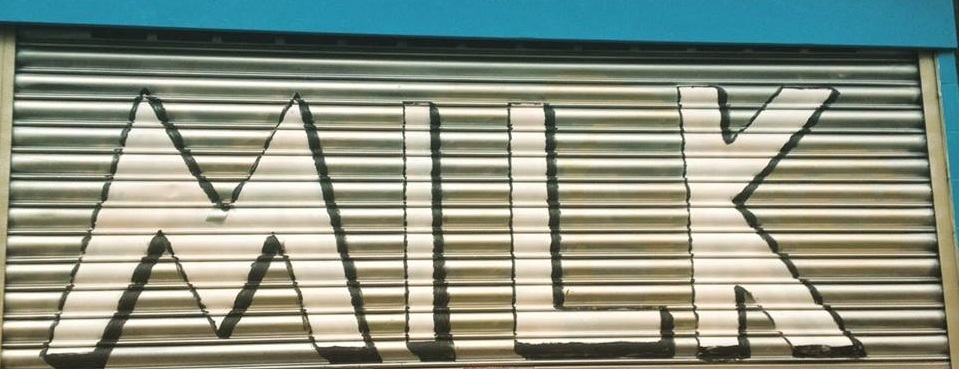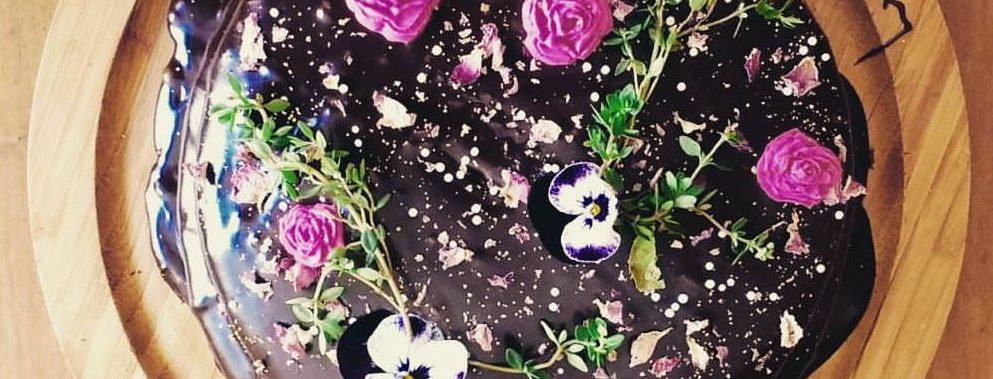Guest Blog: Stories Behind the Statistics in Glasgow: The Role of MILK
Guest blog by Gabby Cluness from MILK. MILK is a social enterprise set up to empower and support refugee and migrant women living in Glasgow. MILK runs a small cafe in the Southside of the city providing a safe and welcoming environment. Visit MILK at 452 Victoria Road, Glasgow, G42 8YU.

Government and media discussions focusing on refugees and migrants usually revolve around costs and quotas: what will these refugees and migrants ‘cost us’ as a society? What are we providing for them, and how and when are we to recoup these costs?
The human element of these peoples’ stories tends to get lost in these media-led conversations. We forget that this is a dialogue about real people, not just statistics, and the benefit and enrichment that they bring to our society is not based solely on their productivity, or their economic contributions; we have missed the opportunity to recognise the weight of the cultural contribution that is made by this category of people.
We started MILK in Glasgow, Scotland with the idea that work experience would be our most valuable offering to the female refugees and migrants we would work with. We believed that furnishing women with the skills to go forth and attain employment would be the main way in which we could support these women and enrich our community. After almost four years of running MILK, we now realise that the ways in which we offer support are far more nuanced than simple work experience, and the rewards which we recoup from the women we work with are more varied and recurrent than we hoped for.
Whilst we have continued to offer job skills and CV support for those women who have sought it, many find that the reality of their domestic situation means that employment is an unrealistic and nonviable prospect. We work with several single mothers with limited English, often with several kids, who have never had a job in their country of origin – never mind here. Even when our volunteers improve their English sufficiently, it usually makes no sense for them to take on low-skilled, underpaid jobs which would slash their benefits. Gaining employment in order for someone else to look after their children, is something which many women we work with find disconcerting.
Employability aside, there are other positive reasons as to why women volunteer at MILK, as well as at other similar projects. Work experience improves our volunteers’ language skills and increases their confidence; it allows the women to mix with people from different backgrounds as well as those who have similar shared experiences; time spent in MILK enables them, even momentarily, to escape their responsibilities and to do something enjoyable; it allows them to share their knowledge as well as to learn new skills. These experiences empower the women and provide them with connections to other people and spaces within their new communities. Time spent in MILK can quite simply be fun!

Not all refugees and migrants can be doctors, scientists or engineers. Most of them are never going to do anything ‘extraordinary’ with their lives, much like the majority of people who were born in this country. This does not make these women a burden, or prevent them from contributing to the things which make our communities really valuable. The process of cooking and baking together in a shared space can be an incredible way of building connections between people, even when there are language barriers. The preparation and exchange of food is a way of demonstrating gratitude and affection between people. Sharing special recipes has a way of bridging seemingly disparate cultures and bringing past experiences to the here and now. I have often shared my cooking with our volunteers and have lost count of the number of times that I have been invited to eat with these women and their families. Huge, luxurious spreads have been provided regardless of household economy, and I have been bundled home afterwards laden with leftovers, giddy with carbohydrate overload. I have laughed a lot during these meals, and occasionally taken myself off to the toilet to have a private cry. I have met their children and heard about their journeys. I have seen the realities of their everyday existence as well as being privileged enough to have insight into their pasts and how it has brought them here.
These stories and the people who tell them are in themselves a contribution to our societies. The women I know bring value to our communities and enrich the lives of others in it.
MILK provided catering for the recent LIDC-MLT Migration Conversation in Glasgow, where these challenges and opportunities around working with refugee and migrant communities were discussed further. The topic of sharing, preserving and transforming food cultures in the context of migration has also repeatedly emerged as a theme in our global conversations.
The report from the Glasgow Migration Conversation is available here

My spouse and I love your blog and find almost all of your post’s to be just what I’m looking for. can you offer guest writers to write content for you? I wouldn’t mind producing a post or elaborating on some the subjects you write concerning here. Again, awesome weblog!
Love this story! And that chocolate cake is to die for! I hope any readers in the Glasgow area will become MILK customers!